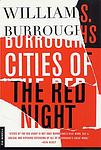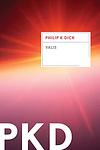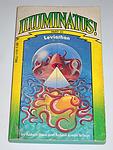The Greatest "Postmodern, Fiction, Speculative Fiction" Books Since 1980
Click to learn how this list is calculated.
This list represents a comprehensive and trusted collection of the greatest books. Developed through a specialized algorithm, it brings together 300 'best of' book lists to form a definitive guide to the world's most acclaimed books. For those interested in how these books are chosen, additional details can be found on the rankings page.
Genres
Postmodernism is a literary movement that emerged in the mid-20th century, characterized by a rejection of traditional narrative structures and a focus on self-reflexivity and intertextuality. Postmodern literature often features fragmented narratives, unreliable narrators, and a blurring of the lines between reality and fiction. It is a genre that challenges the notion of a single, objective truth and instead embraces the idea of multiple perspectives and interpretations. Postmodern literature is often seen as a response to the modernist movement that preceded it, and it continues to be a popular and influential category for contemporary writers.
Speculative fiction is an umbrella genre encompassing narrative fiction with supernatural or futuristic elements. This includes genres such as science fiction, fantasy, horror, supernatural fiction, superhero fiction, utopian and dystopian fiction, apocalyptic and post-apocalyptic fiction, and alternate history. The unifying factor of speculative fiction is its departure from the narrative constraints of reality, exploring imaginative and often profound questions that challenge our understanding of the world and our place within it. These stories often delve into themes like the human condition, social commentary, and the exploration of philosophical and ethical dilemmas through the lens of the fantastical or the yet-to-be-possible. By pushing the boundaries of the known, speculative fiction invites readers to consider the myriad possibilities of existence and the potential consequences of our actions in worlds that are, at once, vastly different from and eerily similar to our own.
Countries
Date Range
Reading Statistics
Click the button below to see how many of these books you've read!
Download
If you're interested in downloading this list as a CSV file for use in a spreadsheet application, you can easily do so by clicking the button below. Please note that to ensure a manageable file size and faster download, the CSV will include details for only the first 500 books.
Download-
1. Nights At The Circus by Angela Carter
"Nights at the Circus" is a fantastical tale set in the late 19th century, centering around a trapeze artist who claims to be a swan princess with wings. A journalist is intrigued by her story and joins the circus to uncover the truth. As the troupe travels from London to Siberia, the journalist becomes increasingly enchanted by the strange world of circus performers and his relationship with the trapeze artist deepens. The book explores themes of love, freedom, and the blurred lines between reality and illusion.
-
2. Lanark by Alasdair Gray
"Lanark" is an unconventional narrative that combines elements of fantasy, dystopia, and realism. The protagonist, a man named Lanark, moves through two parallel existences. In one, he's a young man named Duncan Thaw in post-war Glasgow, struggling with his artistic ambitions and personal relationships. In the other, he's Lanark in the grim, bureaucratic city of Unthank, suffering from a mysterious skin condition and grappling with his identity and purpose. The novel explores themes of love, alienation, creativity, and the human condition, presenting a complex and thought-provoking portrait of life and society.
-
3. The Discovery of Heaven by Harry Mulisch
"The Discovery of Heaven" is a philosophical novel that explores the relationship between mankind and the divine. The story revolves around two friends, an astronomer and a philologist, who are manipulated by heavenly forces to father a child who is destined to return the Ten Commandments to God. As the narrative unfolds, it delves into complex themes such as friendship, love, art, science, and the existence of God, presenting a thought-provoking analysis of the human condition.
-
4. Cities of the Red Night: A Novel by William S. Burroughs
"Cities of the Red Night: A Novel" is a surreal, hallucinatory narrative that intertwines three storylines: an 18th-century pirate crew seeking utopia, a detective investigating a series of grotesque murders, and a pandemic causing spontaneous orgasms. The novel explores themes of homosexuality, anarchism, and the occult, using its disjointed narrative structure to challenge traditional understandings of time, space, and reality.
-
5. VALIS by Philip K. Dick
The novel follows a mentally unstable man who begins to experience visions after being hit by a mysterious pink light. Convinced the light is a divine entity named VALIS, he and his friends embark on a quest to understand and communicate with it. As they delve into philosophy, religion, and science, the boundaries between reality and delusion begin to blur, leaving both the characters and the reader questioning the nature of existence.
-
6. Against the Day by Thomas Pynchon
The novel is a sprawling epic that spans the period from the 1893 World's Fair to the years following World War I. It follows the stories of several characters including the anarchist Traverse family, a group of balloonists, a detective, and a mathematician. The book explores themes of anarchism, capitalism, and technology, and incorporates elements of science fiction, adventure, and historical fiction. It is noted for its complex structure and dense, multifaceted narrative.
-
7. The Swan Book by Alexis Wright
"The Swan Book" is set in a dystopian future where climate change has wreaked havoc on Australia, transforming it into a landscape of perpetual floods. The story centers around Oblivia Ethylene, a mute and traumatized Aboriginal girl who is found living in a wrecked ship grounded in a tree. She is taken under the wing of Bella Donna, a European woman who marries the first Aboriginal president of Australia. The narrative weaves elements of Aboriginal mythology, environmental disaster, and the political struggles of indigenous peoples, exploring themes of displacement, identity, and resilience.
-
8. Leviathan by Robert Shea, Robert Anton Wilson
This book is a satirical science fiction novel that delves into conspiracy theories, secret societies, and the nature of reality. It follows a diverse cast of characters, including detectives, spies, and occultists, as they navigate a complex plot involving the Illuminati, a shadowy organization believed to control world events. Set against a backdrop of historical and fictional events, the narrative weaves together disparate threads into a tapestry that challenges the reader's perception of truth and power. The novel's blend of humor, philosophy, and speculative fiction makes it a unique exploration of control, freedom, and the human condition.
-
9. Galapagos by Kurt Vonnegut
"Galapagos" is a satirical novel that explores the future of humanity through the lens of a group of survivors stranded on the Galapagos Islands after a global pandemic. With a mix of dark humor and social commentary, the story follows the evolution of the human species over a million years, highlighting the absurdity of human nature and the impact of evolution on society.
Reading Statistics
Click the button below to see how many of these books you've read!
Download
If you're interested in downloading this list as a CSV file for use in a spreadsheet application, you can easily do so by clicking the button below. Please note that to ensure a manageable file size and faster download, the CSV will include details for only the first 500 books.
Download







